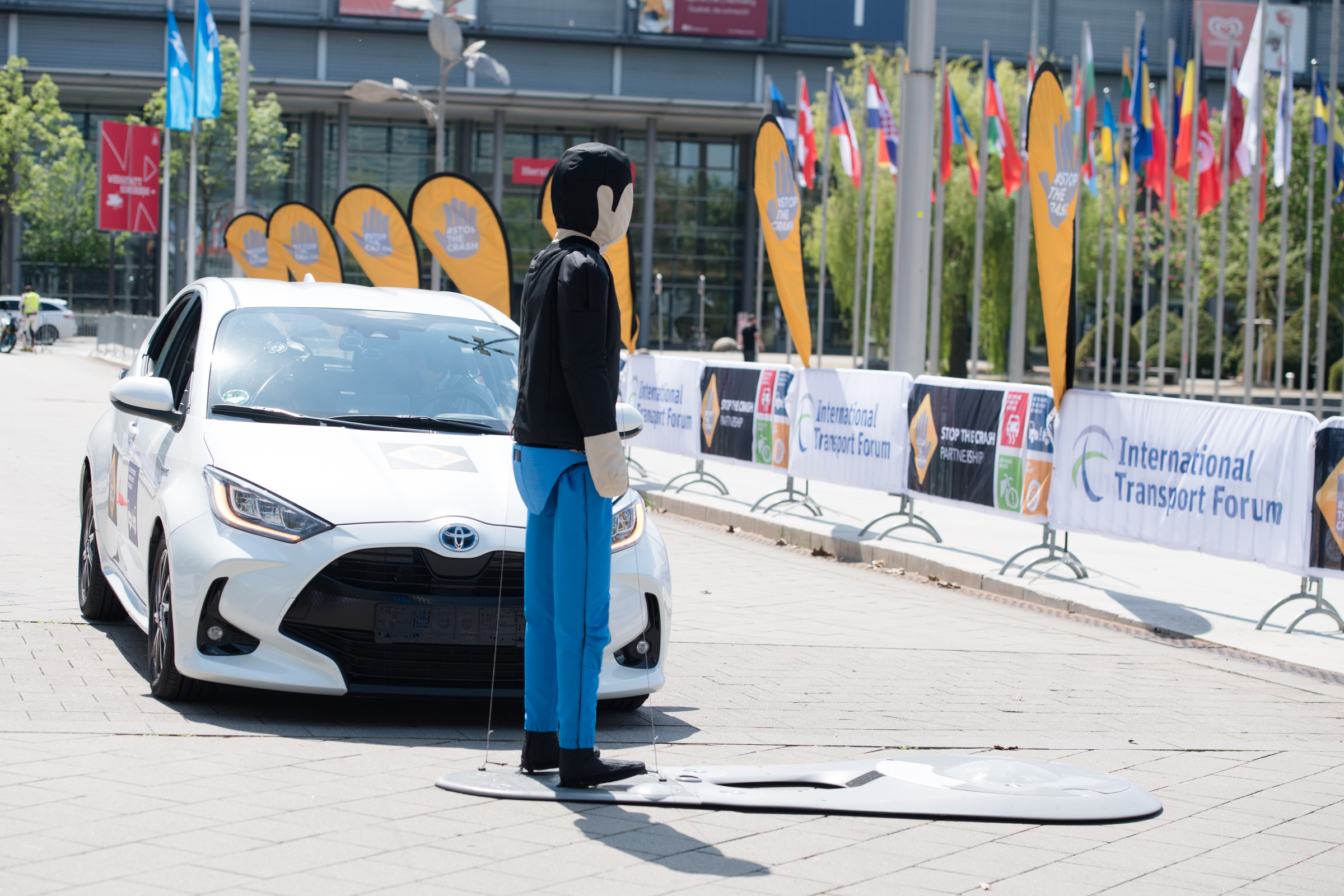
The Alliance is among 23 signatories to a joint letter sent to International Transport Forum Chair, Juan Carlos Muñoz, calling for countries to resist watering down vehicle safety standards in trade negotiations resulting from recent global tariff disputes. In particular, the letter notes UN regulations, adopted by major car-producing countries including China, the European Union’s 27 member states, India, Japan, South Korea and the United Kingdom, that specifically protects pedestrians in the event of a collision.
Read the full text below or download it here.
Dear Dr. Muñoz
We are writing to you in your capacity as Chair of this year’s International Transport Forum (ITF) Summit in Leipzig on 21-23 May during the Chilean Presidency. Working on road safety and supporting the United Nations’ (UN) Decade of Action for Road Safety, we are concerned that current disputes over tariffs and trade in automobiles could have an adverse impact on well-established global vehicle safety standards. We have outlined several actions that should be taken by ITF Transport Ministers to ensure that road safety will not be compromised as a result of any automotive trade negotiations.
For many decades, the UN World Forum for Harmonization of Vehicle Regulations – through its 1958 and 1998 Agreements – has provided a framework for automotive safety standards that have also facilitated cross-border trade1. Thanks to the availability of UN standards, requirements for front and side crash tests, for pedestrian protection, and for electronic stability control are now commonly applied to passenger cars worldwide. Global harmonization has delivered huge economies of scale making safety affordable in markets around the world. That is how vehicle safety has contributed to a modest but welcome overall improvement in global road fatalities, despite unprecedented growth in motorization worldwide2.
There is a risk now that this progress will be reversed if automotive trade negotiations result in a roll back of safety standards. We believe that it is extremely important not to confuse well-established global regulations with alleged ‘unfair’ trade practices. Unfortunately, this is now happening. Recently, Donald Trump, the President of the United States (US), criticized the pedestrian protection regulation claiming that it was being used to block trade in US made cars3. In fact, the test – available since 2008 as a UN regulation– aims to soften the bonnet hood and bumper area to reduce the risk of injury to head, chest and leg of a pedestrian struck by a car4. Today, this test is applied by China, the European Union’s 27 member states, India, Japan, South Korea and the United Kingdom.
Unfortunately, the US stands alone as the only major car producing country that does not yet apply this well-known standard. However, this was about to change. Last year, the National Highway Traffic Safety Administration (NHTSA) proposed action on pedestrian protection, introducing a draft federal rule and including the test in the US New Car Assessment Program from 20265. The easiest way, therefore, for the US to improve market access for its cars is for the NHTSA to implement the pedestrian protection standard already applied by its major competitors.
We strongly believe that it is better to level up than to level down vehicle standards. This would both improve road safety and international trade in automobiles. It would surely be tragic for the victims of trade wars to be everyone on the roads, including vulnerable pedestrians and children. To avoid this, we respectfully ask ITF Transport Ministers to support the following actions:
We would be very grateful if our letter could be shared with your fellow transport Ministers at the Leipzig Summit.
Antonio Avenoso, Executive Director, European Transport Safety Council
Rohit Baluja, President, Institute of Road Traffic Education
Raquel Barrios, Executive Director, Youth for Road Safety
Saul Billingsley, Executive Director, FIA Foundation
Stephan Brodziak, Chairman Board of Directors, New Car Assessment Programme for Latin America and the Caribbean
Lotte Brondum, Executive Director, Global Alliance of NGOs for Road Safety
Greig Craft, President, Asia Injury Prevention Foundation
Dave Cliff, Chief Executive Officer, Global Road Safety Partnership
David Harkey, President, Insurance Institute for Highway Safety
Jamie Hassall, Executive Director, Parliamentary Advisory Council for Transport Safety
Emma MacLennan, Director General, Eastern Alliance for Safe and Sustainable Transport
Rob McInerney, Chief Executive Officer, International Road Assessment Programme
Michiel van Ratingen, Secretary General, European New Car Assessment Programme
Stephen Russell, Director General, ANEC – The European Consumer Voice in Standardisation
Donna Price, Co-Chair, International Road Victims Partnership
Rochelle Sobel, President, Association for Safe International Road Travel
Robert Staba, President, European Federation of Road Traffic Victims
Barbara Stoll, Founder and Senior Director, Clean Cities
Karen Vancluysen, Secretary General, POLIS
Geert van Waeg, President, International Federation of Pedestrians
Jill Warren, Chief Executive Officer, European Cyclists Federation
Jeffrey Witte, Executive Director, Amend – Safe & Health Journeys
Richard Woods, Chief Executive Officer, Global NCAP